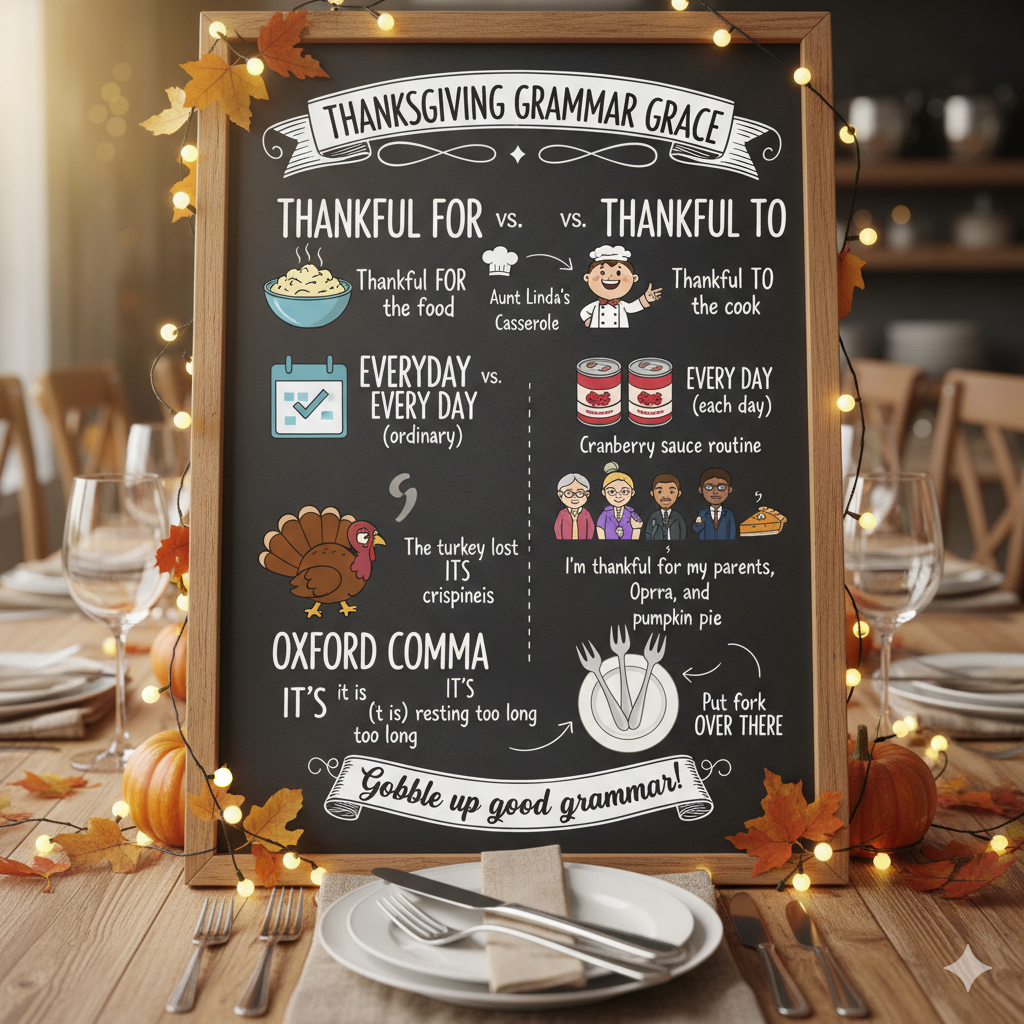A Thanksgiving Feast of Easy Grammar Wins
Thanksgiving brings family, food, and the yearly challenge of pretending you didn’t eat three slices of pie. But it also brings a perfect chance to tidy up a few grammar habits that sneak onto the table like an uninvited side dish.
1. “Thankful for” vs. “Thankful to”
You are thankful for the mashed potatoes, but thankful to the person who made them.
If Aunt Linda supplied the casserole, give credit where credit is due.
2. “Everyday” vs. “Every day”
Everyday means ordinary.
Every day means each day.
Your cranberry sauce routine might be everyday, but you eat it every day only in November.
3. “Its” vs. “It’s”
Classic holiday mix-up.
Its shows possession.
It’s means “it is.”
If your turkey has lost its crispiness, it’s probably been resting too long.
4. Oxford Comma: The Ultimate Feast Debate
Some families argue about politics. Others argue about the Oxford comma.
Using it can avoid chaos: “I’m thankful for my parents, Oprah, and pumpkin pie.”
Without it, you might be suggesting that Oprah and pumpkin pie are your parents. Awkward.
5. “There,” “Their,” and “They’re”
They’re enjoying their holiday, and you should put the extra fork over there.
Easy, breezy, grammatically pleasing.
Final Bite
As you head into the season of gratitude, gatherings, and glorious carbs, let your writing be as polished as your best holiday place setting. A few mindful grammar choices can keep your messages sharp, clear, and free of unintentional drama—unlike whoever tries to bring up politics before dessert.
